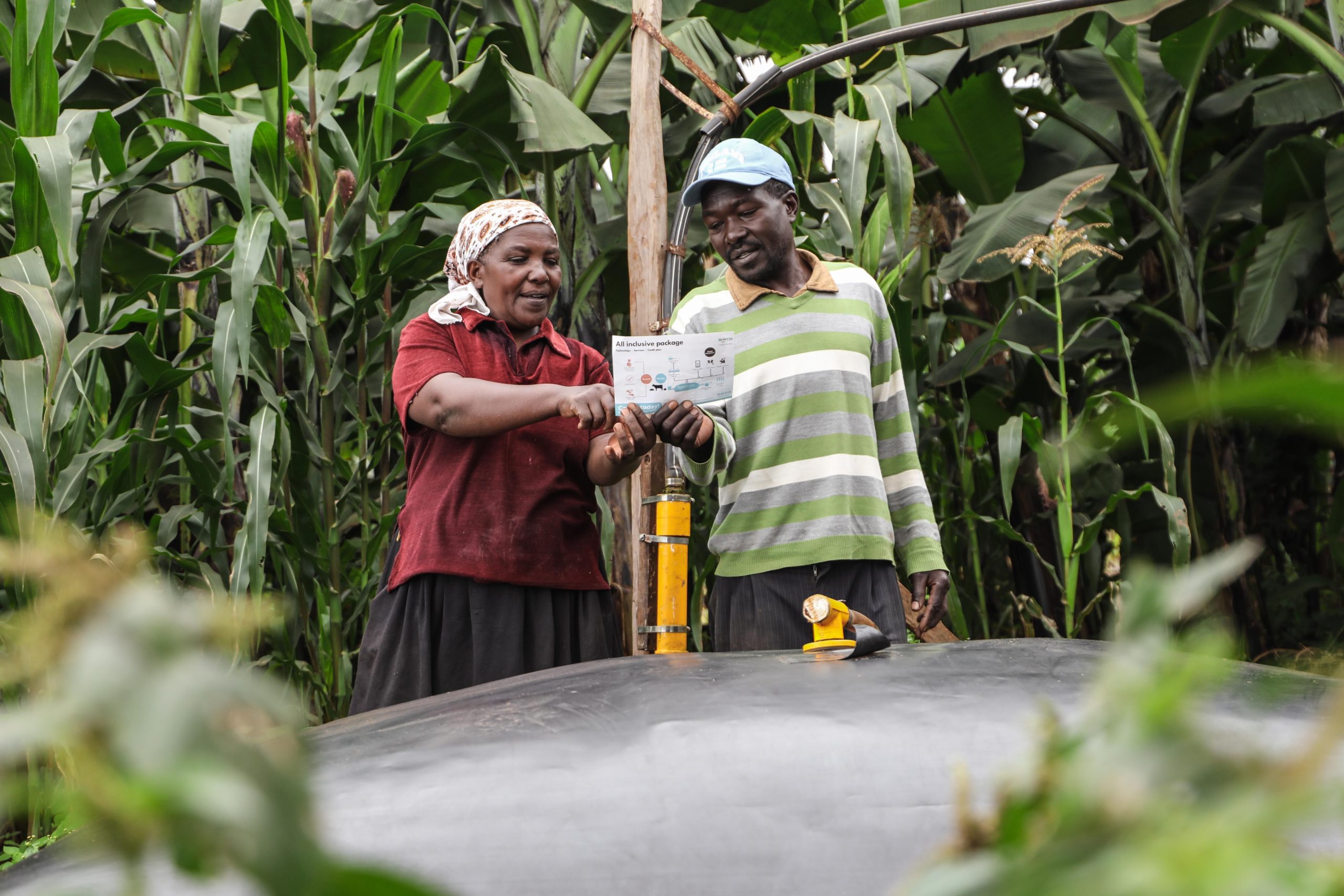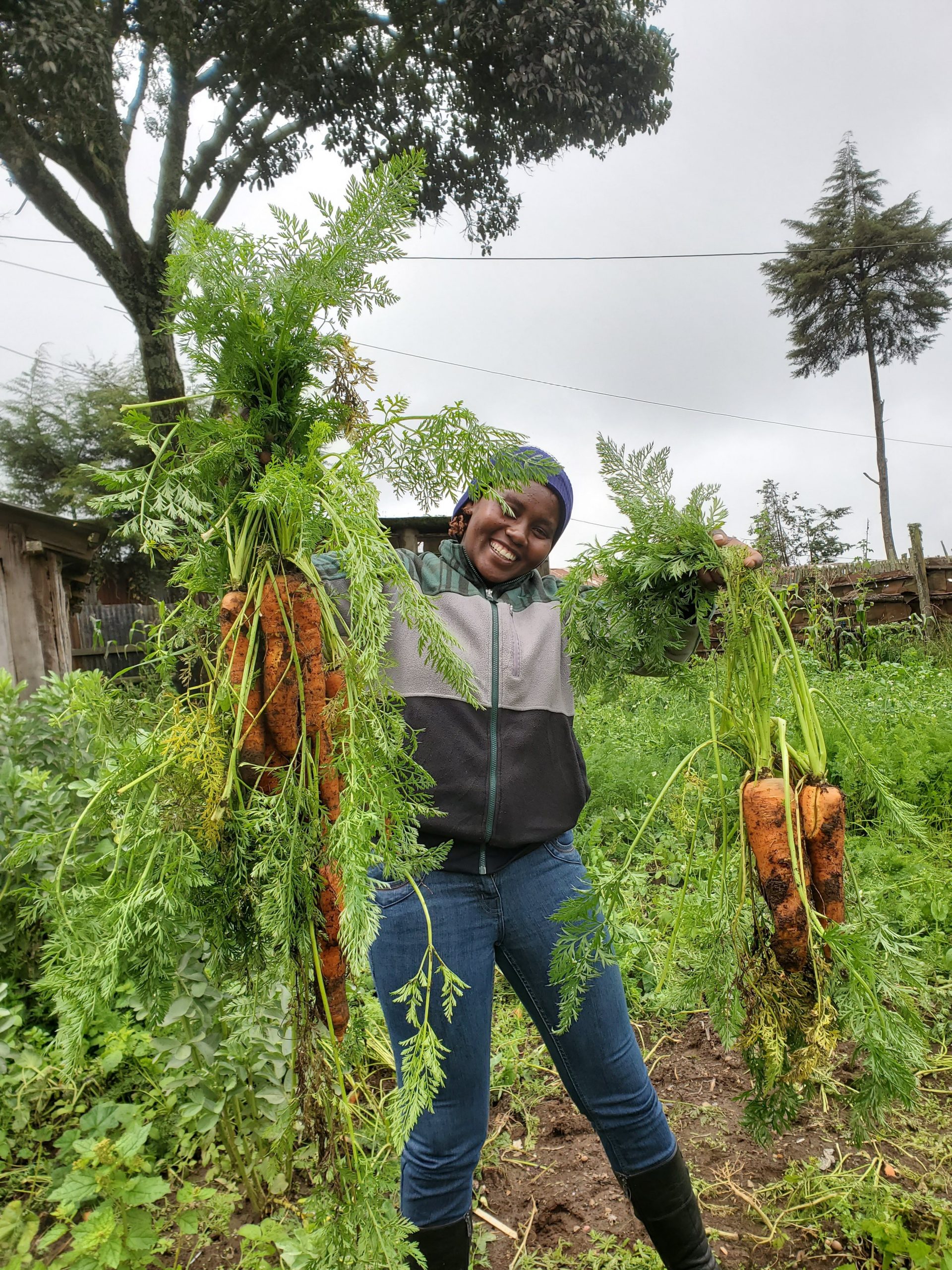About DFIs
Case studies
Accelerating the transition from waste to energy with Sistema.bio
- Project
- EDFI ElectriFI
- Sector
- Renewable energy, clean cooking
- Country
- Africa
In May 2019, EDFI ElectriFI, the Electrification Financing Initiative, invested USD 2m in Sistema.bio to support to support the company’s rapid scale up in Latin America, East Africa, and South Asia.
Sistema.bio is in the business of creating value from waste. This Mexican-born company has been working hard over the past ten years to make sustainable farming a reality for families all over the world. Their state-of-the-art biodigesters take animal waste and turn it into biogas, a clean & renewable energy, as well as biofertilizer, a liquid organic fertilizer that can be used to enhance crop production.
Their mission is simple: to create a sustainable, equitable world without waste. In fact, to Sistema.bio there is no such thing as waste: there’s only resources. Managing animal waste is a daily reality for farmers, a reality that implies not only work but potential contamination and diseases. With biodigesters, manure that would gather mosquitoes and potentially end up in rivers is now utilized for better things like cooking, fertilizing crops and even milking cows!
Renewable energies and sustainable practices can have a huge impact on the future of the world. In order to achieve the Sustainable Development Goals by 2030, global reforms need to be accompanied by individual actions across the world. Taking this into consideration, Sistema.bio has been joining hands with smallholder farmers to address critical matters like world hunger, poverty and climate change. The following stories dive a little deeper into Sistema.bio’s strategies for impact.
- The MBUGUA family: Harvesting value
“There is no comparison between biogas and firewood when it comes to health.”
Mr. Stephen Mbugua, Nyandarua, Kenya
Mr. Stephen and Mrs. Mary own an 8-acre farm in Nyandarua, as well as a small butchery. They are proud owners of a Sistema.bio biodigester, which has helped them displace firewood from their kitchen. Their Sistema 20 biodigester produces 5 cubic meters of biogas per day, which translates to 10 daily hours of cooking with biogas. Eliminating firewood for cooking not only helps the family to reduce their daily workload, it also contributes to improve their respiratory health. Indoor pollution caused by firewood smoke is a very big issue for rural kitchens, as well as a public health challenge that causes more premature deaths than HIV, malaria, and tuberculosis combined. Due to existing gender roles, women and girls are most affected by indoor pollution, being the ones in charge of cleaning and cooking. In rural settings, they also carry the workload of collecting charcoal and firewood, tasks that can be eliminated through firewood displacement. Biogas has also represented big savings for the 5-person household, cutting down on approximately 4,000 KES (37 USD) per month for LP gas and firewood. The Mbugua family has also found great value in biofertilizer, a resource that has helped them reduce the costs of chemical fertilizers. They now produce 400 liters of biofertilizer per day, which is enough to fertilize 14 hectares per year. Stephen and Mary have become Sistema.bio celebrities with their out-of-this-world carrots and cabbages, which they feed with their biofertilizer!
- The MURIUNGI family: Soil as a legacy
“Biofertilizer leaves the soil healthy, reduces the cost of inputs and doubles yields.”
Mrs. Charity Muriungi, Meru, Kenya
Charity and James Muriungui own a 1-acre farm in Meru. They grow tree tomatoes, maize and kale for subsistence, as well as cabbages and potatoes for selling. They purchased their Sistema 8 biodigester in 2018 and have since become biofertilizer experts. They produce 150 liters of biofertilizer per day, which they proactively make the most of. They installed an underground piping system for the fertilization of their crops, a decision that will not only help their crops but also their soil -and the world. Farming has a big impact on soil health, and the more land is used for agriculture practices, the weaker the soil gets. Usually, farmers face this through the use of chemical fertilizers, which works in the short term but is detrimental in the long run. Organic fertilizers like the one produced by biodigesters bring nutrients back to the soil, ensuring better conditions for crop growth. Plus, improving soil health helps farming lands last for generations, reducing the need for repurposing virgin lands for agriculture. As if this wasn’t a win in itself, using biofertilizer has helped the Muriungis increase their potato production from 10 to 20 bags per harvest. Having completely eliminated chemical fertilizers on their farm, the Muriungis now save around 6,000 KES (56 USD) per year. Leaders of innovation, they have also started to use undigested cow dung mixed with biofertilizer for mulching, a practice that contributes to water conservation in their farm’s soil.
- Edna Chelule: Educating through example
“It is important for children to learn how to be environmental activists.”
Edna Chelule, Bomet, Kenya,
Edna is an educator and an environmental activist. She works at the Sotik Green Academy, a school in Bomet that has recently purchased a Sistema 30 biodigester. Agriculture is part of Sotik’s curriculum, since they believe teaching kids how to farm is essential for building character. What’s more, Edna and her team truly believe that providing an environmental education is essential, now more than ever. The students at the Sotik Green Academy are now learning about sustainability, as well, thanks to the use of the biofertilizer in their school’s 5-acre organic farm. Biogas has eliminated monthly expenses of firewood and LP gas (around 5,000 KES (46 USD)) for the school and is now covering the school’s fuel needs. A lot of things can change from one generation to the next. Teaching kids sustainable farming practices can help us build a better future. Making sustainability the norm, and not the exception, can help us save the Earth.
For Sistema.bio, small farmers hold the key to food security and climate change. Through their biodigesters, the company looks to change the way farming is done and, consequently, change the world. We recommend you visit their blog to find out more about their views on gender equity & equality, food security, waste management, and sustainability.
Expected impact of Sistema.bio based on EDFI ElectriFI’s investment:
- Number of beneficiaries : 211,000
- GHG avoidance (tCO2eq/y): 265,000


